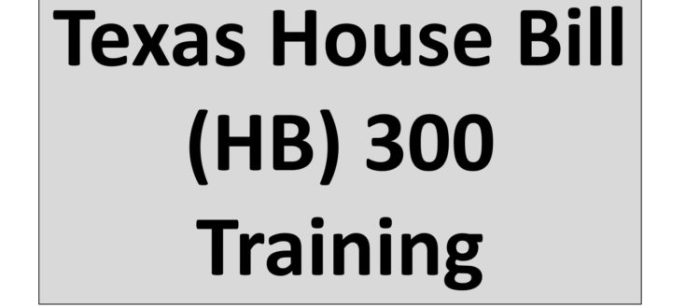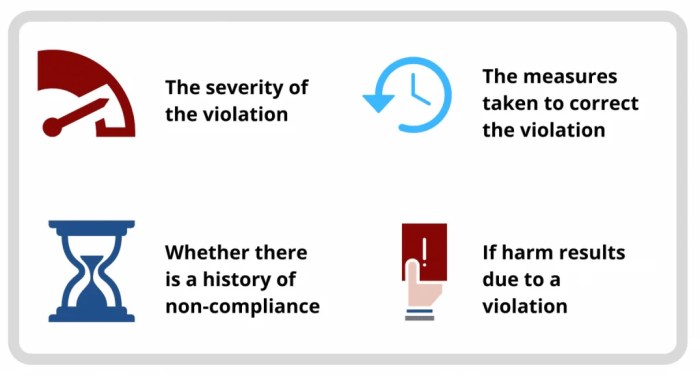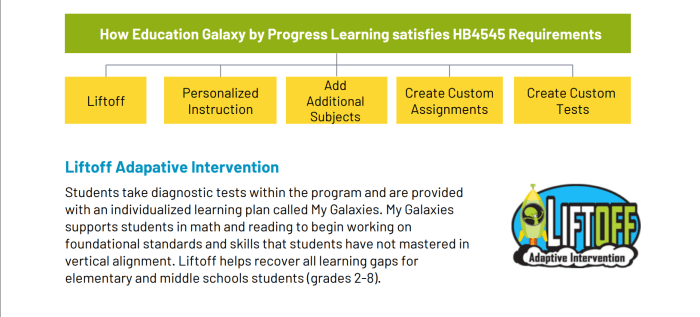Texas House Bill 300 Relias Answers provides an in-depth examination of the groundbreaking legislation that has transformed healthcare compliance in the state of Texas. This comprehensive guide delves into the purpose, provisions, and impact of the bill, exploring its implications for healthcare providers and patients alike.
Through a detailed analysis of Relias Answers’ role in supporting the implementation and compliance of Texas House Bill 300, this guide offers practical insights and best practices for healthcare organizations seeking to navigate the complexities of the new regulations.
Texas House Bill 300 Overview: Texas House Bill 300 Relias Answers
Texas House Bill 300 (HB 300) is a comprehensive piece of legislation aimed at improving the quality and accessibility of healthcare services in the state of Texas. Enacted in 2021, HB 300 includes several key provisions designed to address challenges faced by healthcare providers and patients.
One of the primary goals of HB 300 is to expand access to affordable healthcare coverage. The bill requires health insurance carriers to offer a variety of plans that meet the needs of different individuals and families. HB 300 also provides subsidies to help low-income Texans purchase health insurance.
In addition to expanding access to coverage, HB 300 also aims to improve the quality of healthcare services provided in Texas. The bill includes provisions to increase transparency and accountability in the healthcare system. It also requires healthcare providers to meet certain quality standards in order to participate in state-funded programs.
The passage of HB 300 represents a significant step forward in the effort to improve healthcare in Texas. The bill’s provisions are expected to have a positive impact on the health and well-being of Texans.
Relias Answers and House Bill 300

Relias Answers is a leading provider of online training and compliance solutions for healthcare organizations. The company’s products and services are designed to help healthcare providers meet the requirements of state and federal regulations, including those set forth in HB 300.
Relias Answers offers a variety of resources to help healthcare providers implement and comply with HB 300. These resources include online training modules, compliance checklists, and expert guidance. Relias Answers also provides ongoing support to healthcare providers to help them stay up-to-date on the latest changes to HB 300 and other healthcare regulations.
By partnering with Relias Answers, healthcare providers can ensure that they are meeting the requirements of HB 300 and providing the highest quality of care to their patients.
Impact of House Bill 300 on Healthcare Providers
HB 300 has a significant impact on healthcare providers in Texas. The bill’s provisions affect a wide range of areas, including:
- Access to care: HB 300 expands access to affordable healthcare coverage for Texans. This is expected to lead to an increase in the number of patients seeking care, which could put a strain on healthcare providers.
- Quality of care: HB 300 includes provisions to improve the quality of healthcare services provided in Texas. This could lead to increased costs for healthcare providers, as they will need to invest in new technologies and training to meet the new standards.
- Compliance: HB 300 includes a number of new compliance requirements for healthcare providers. These requirements can be complex and time-consuming to implement, which could divert resources away from patient care.
Despite the challenges, HB 300 also presents opportunities for healthcare providers. The bill’s provisions could lead to increased demand for healthcare services, which could result in increased revenue for providers. HB 300 also provides funding for new programs and initiatives that could help providers improve the quality of care they provide.
Compliance Requirements and Resources

HB 300 includes a number of new compliance requirements for healthcare providers. These requirements are designed to ensure that providers are providing high-quality care and meeting the needs of their patients.
Some of the key compliance requirements of HB 300 include:
- Providers must develop and implement a quality improvement plan.
- Providers must track and report patient outcomes.
- Providers must provide patients with clear and concise information about their treatment options.
- Providers must protect the privacy of patient information.
The Texas Health and Human Services Commission (HHSC) has developed a number of resources to help healthcare providers comply with HB 300. These resources include:
- A compliance guide
- A toolkit for developing a quality improvement plan
- A data reporting portal
Healthcare providers can access these resources on the HHSC website.
Best Practices for Implementation

There are a number of best practices that healthcare providers can follow to successfully implement HB 300. These best practices include:
- Start early: Don’t wait until the last minute to start implementing HB 300. Start planning and preparing now.
- Get organized: Create a team to oversee the implementation of HB 300. This team should be responsible for developing a plan, tracking progress, and ensuring that all requirements are met.
- Communicate with staff: Keep staff informed about the changes that are being made to comply with HB 300. Provide training and support to help staff understand the new requirements.
- Use resources: There are a number of resources available to help healthcare providers implement HB 300. Use these resources to your advantage.
By following these best practices, healthcare providers can successfully implement HB 300 and improve the quality of care they provide to their patients.
Case Studies and Examples

There are a number of healthcare providers who have successfully implemented HB 300. These providers have used a variety of strategies to achieve success. Some of the most common strategies include:
- Developing a strong quality improvement plan
- Tracking and reporting patient outcomes
- Providing patients with clear and concise information about their treatment options
- Protecting the privacy of patient information
One example of a healthcare provider who has successfully implemented HB 300 is the University of Texas Medical Branch (UTMB). UTMB developed a comprehensive quality improvement plan that included a focus on patient safety, patient satisfaction, and cost-effectiveness. UTMB also implemented a data reporting system that allowed the hospital to track patient outcomes and identify areas for improvement.
As a result of these efforts, UTMB has seen a significant improvement in the quality of care it provides to patients.
Question Bank
What is the primary purpose of Texas House Bill 300?
Texas House Bill 300 aims to enhance the quality of healthcare services provided in the state by establishing new standards for healthcare providers and ensuring their compliance with these standards.
How does Relias Answers support the implementation of Texas House Bill 300?
Relias Answers provides comprehensive educational resources, training programs, and compliance tracking tools that assist healthcare providers in understanding and meeting the requirements of Texas House Bill 300.
What are the key compliance requirements for healthcare providers under Texas House Bill 300?
Healthcare providers must adhere to specific standards related to patient care, documentation, training, and quality improvement initiatives as Artikeld in Texas House Bill 300.